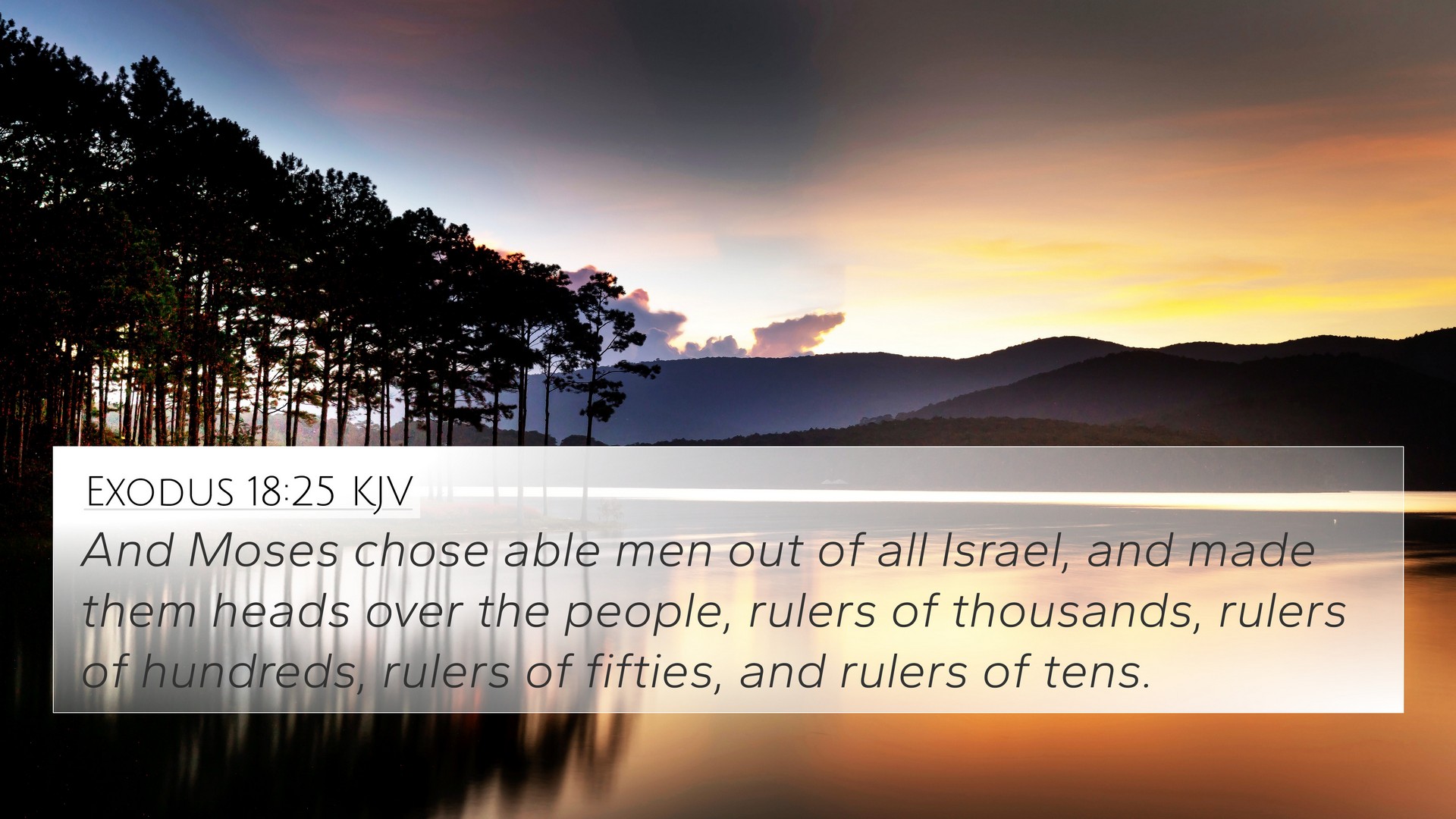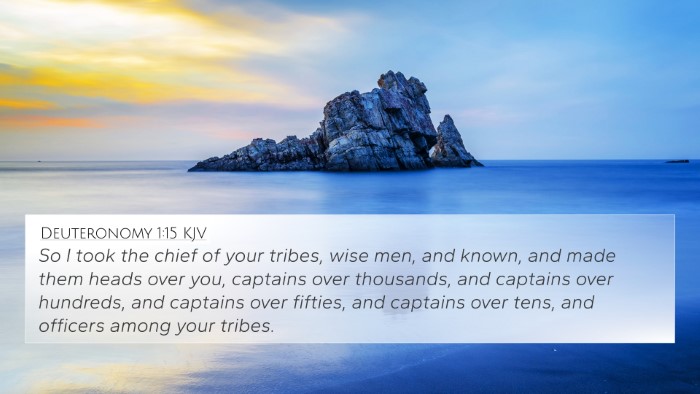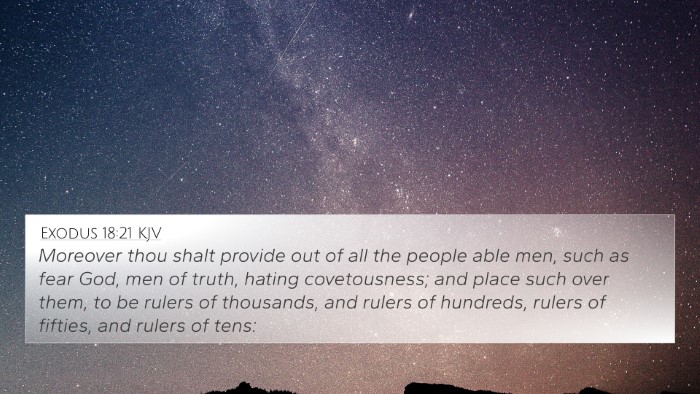Exodus 18:25 states, "And Moses chose able men out of all Israel, and made them heads over the people, rulers of thousands, and rulers of hundreds, rulers of fifties, and rulers of tens." This verse highlights Moses’ wisdom in delegating authority and establishing a structured leadership hierarchy among the Israelites. By selecting capable individuals for leadership, Moses ensured the effective administration of justice and governance, reducing the burden on himself while empowering others to serve their community.
In examining this verse, we can draw various insights from the commentaries of Matthew Henry, Albert Barnes, and Adam Clarke. Here are the key meanings and themes they present:
-
Delegation of Authority:
Moses demonstrates the critical skill of delegation, essential for effective leadership. By identifying able men and appointing them as leaders, he ensures a more manageable governance structure. This action symbolizes the importance of empowering others and fostering shared responsibility within a community.
(Henry)
-
Qualification for Leadership:
The emphasis on choosing "able men" reflects the biblical principle that leaders should possess both capability and integrity. This selection process serves as a model for leadership today, reminding us to seek those who are equipped to lead in both skills and character.
(Barnes)
-
Structured Governance:
The hierarchical organization Moses established—rulers over thousands, hundreds, fifties, and tens—indicates the need for structured governance. Such a system allows for easier management and accountability, suggesting that organization is vital in any leadership role.
(Clarke)
-
Community Empowerment:
By involving others in leadership, Moses fosters a sense of community and shared purpose. This approach serves as an important lesson for contemporary leaders about the value of collaboration in achieving common goals.
(Henry)
-
Judicial Responsibility:
The appointment of leaders to oversee different group sizes likely relates to delivering justice and resolving disputes. This delegation underscores the biblical teaching that justice should be rooted in community leadership, promoting a fair and equitable society.
(Barnes)
Exodus 18:25 can be understood in context with several other scriptures, which create thematic links and cross-references that enhance our understanding of leadership, structure, and community in biblical texts. Here are some related verses:
- Exodus 18:21: Highlights the importance of selecting capable men for leadership roles.
- Deuteronomy 1:15: Discusses appointing leaders of thousands, hundreds, and tens.
- Numbers 11:16-17: Describes God instructing Moses to gather seventy elders to share the burden of leadership.
- 1 Timothy 3:1-7: Outlines qualifications for elders and leaders in the church.
- Proverbs 11:14: Emphasizes the guidance found in the multitude of counselors.
- Titus 1:5: Encourages Paul to appoint elders in every city, highlighting structured governance.
- Acts 6:3: Relates the early church's need for selecting leaders to oversee administrative duties.
Ultimately, Exodus 18:25 provides profound insights into leadership principles that are applicable across various contexts, offering timeless wisdom about governance and community involvement. The connections between this verse and others highlight the importance of cross-referencing biblical texts to deepen our understanding of scripture. By employing tools for Bible cross-referencing, such as a Bible concordance or cross-reference guide, individuals can explore these themes further and gain a richer comprehension of the biblical narrative.
Conclusion:
To fully grasp the implications of Exodus 18:25, engaging in comparative Bible verse analysis and identifying thematic Bible verse connections is crucial. Understanding how leaders are addressed across the Bible—both in the Old and New Testaments—can facilitate stronger sermon preparation and enhance our spiritual growth through the insights gained from inter-Biblical dialogue.





